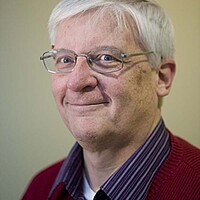Shai Reshef is bringing the university to the people
Loading...
The online University of the People has an immodest goal: Bring higher education to everyone on the planet – and at little or no cost.
This spring it's passing two significant waymarks on the way: Earlier this year, the UoPeople, as it's called, earned accreditation from the Distance and Education Training Council. And on April 2 the first seven students (four from the United States and one each from Nigeria, Jordan, and Syria) will formally graduate.
The nonprofit, online-only university, which began operation in 2009, seeks to reach millions of potential learners worldwide who would otherwise have little or no chance of earning a two-year or four-year college degree.
Though interest in online learning has soared (Coursera, MIT OpenCourseWare, edX, Khan Academy, etc.), most of those studying online today either aren't seeking a college degree, already have at least one degree, or fail to complete the online courses they begin, says Shai Reshef, the president and founder of the University of the People. In contrast, UoPeople is aimed at students of modest means who are serious about earning their first degree: Some 75 percent of current UoPeople students have completed at least 10 courses and have advanced to what would be the equivalent of a second year of study.
Other online programs serve "the haves," Mr. Reshef says. "We serve the have-nots." Among UoPeople's students around the world, he says, are survivors of the tsunami in Indonesia and the genocide in Rwanda. "We are the alternative for those who have no other alternative."
By becoming accredited, UoPeople has kept faith with its students, who have been taking its courses with the hope that their degree would be recognized in the wider world.
"Being accredited … is important for our students," Reshef says in a phone interview from New York City. Without accreditation UoPeople students would be unlikely to be accepted to graduate schools; even more important, potential employers are less likely to hire students from a school that is not accredited.
"Accreditation is basically a stamp of quality," Reshef says. When one UoPeople student in China learned that the school would be accredited, he sent an excited reply to Reshef by email that said, "I jumped on my table and started screaming. So my fellow employees said, 'What's going on? Did you win the lottery?' So I said, 'No, I won much more than the lottery.'"
Accreditation also assures donors that high-quality teaching is taking place. UoPeople is now in the process of fundraising, with a goal of 5,000 students and $5 million in donations by 2016, which would make the school financially sustainable, Reshef says.
For its deans and teaching staff, UoPeople draws on a pool of some 3,000 volunteer professors, some retired and others still active at their own institutions. That's many more offers to help than UoPeople, which currently offers degree programs only in computer science and business administration, needs.
UoPeople students, who live in 142 countries and most US states, pay nothing to take classes online. They don't even need a fast Internet connection; nearly a quarter of them still use slow dial-up services. Students study using any Internet-connected computer they can find, or on tablets or even smart phones. They are taught in English and so must have a basic understanding of that language. They also must have a high school diploma.
When UoPeople students are ready to take a final exam, the cost is $100. But even that fee can be reduced or waived for those who show financial hardship. The exam fees, though tiny in comparison with the cost of a typical college course, are a key component in helping UoPeople become financially viable, Reshef says.
Reshef also wants to spread the word about UoPeople to more potential students. UoPeople has 1.2 million friends on Facebook, second only to Harvard among universities, he says. But it has no budget for publicity. "Most of the people who need us haven't heard of us," he says.
UoPeople would also like to expand its offering of degree programs. Based on interest from students, health sciences may be next. But the sciences bring with them the need for laboratory work. Online versions of labs exist, but they take a fast Internet connection to use.
The academic community has been very supportive of UoPeople, Reshef says, as indicated by the number who have volunteered to teach. UoPeople represents no threat to existing academic institutions, he says.
"There is room for everyone. There is room for Ivy League universities. There is room for [UoPeople] and everything in between," Reshef says. "I believe that the market [for higher education] is so huge that others can do whatever we do and there's room."
He's ready to lend a hand to anyone looking to enter the field of online learning, he says. "We'd love to help anyone who wants to do this."
• To learn more visit http://uopeople.edu/








